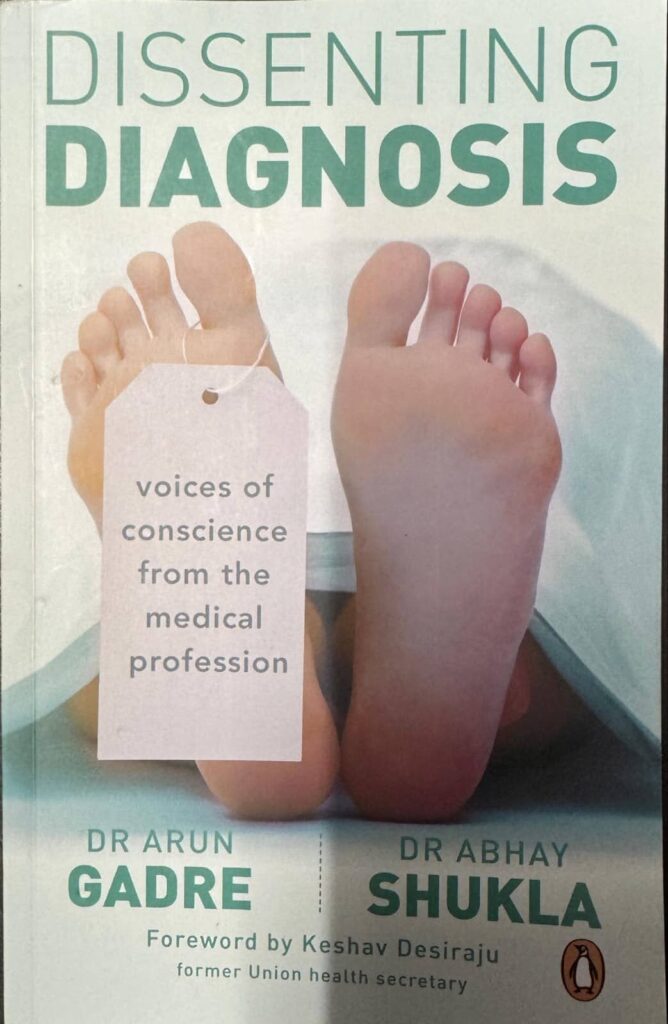Reviewed by Dr. Debleena Bhattachaarya

In Dissenting Diagnosis, Dr. Arun Gadre and Dr. Abhay Shukla provides an insightful well-researched analysis of the troubling state of medicine in contemporary India. The book draws on the candid testimonies of seventy-eight physicians working in both the private and public sectors and sheds light on health care abuse and ethical violations.
The book addresses the growing dissatisfaction with medical care in India, highlighting issues such as unnecessary tests, botched operations, and the use of expensive, and sometimes harmful, medications. With a burgeoning medical sector, especially in urban centers where multi-specialty hospitals and advanced technologies proliferate, the principles of rational and ethical medical care appear to be under siege. The book also gives a glimpse of the manipulative theory used by the practitioners in luring the patients for spending a humongous amount of money. The various malpractices in the most noble profession has not only made a deep dent which is irreplaceable but also hampered the faith one has on the doctors. The place of almighty adjourned to the doctors was maligned with greed..
Through their research, Gadre and Shukla reveal how the very systems meant to safeguard patients often fall short, contributing to widespread malpractice and corruption.Medical ethics principles seem to have underpinned the growth of medicine, especially in urban areas where more specialty hospitals and advanced technology are expanding and their research found that the medical fraternity intended to protect patients often fail, leading to widespread misconduct and corruption.
Gadre and Shukla provide an important lens on the current state of Indian health by weaving first-hand accounts from physicians frustrated by the systemic issues in their field. The strength of the book is its detailed description of how vulnerable patients are often exploited by a system that prioritizes profit over patient well-being. The authors’ insights provide a better understanding of the mechanisms by which professional organizations and the medical profession contribute to this problem and the challenges it faces. One notable feature of the book is its balance between exploration and creative solutions. While the authors effectively demonstrate policy deficiencies, they also propose implementable reforms aimed at fostering more morale and patience.
This book is highly recommended for anyone interested in healthcare reform, medical ethics, or the state of medical practice in India. It is particularly valuable for medical professionals, healthcare policymakers, and advocates for patient rights. Dissenting Diagnosis offers a critical perspective that is both enlightening and actionable, making it a significant contribution to the discourse on healthcare quality and ethics.

